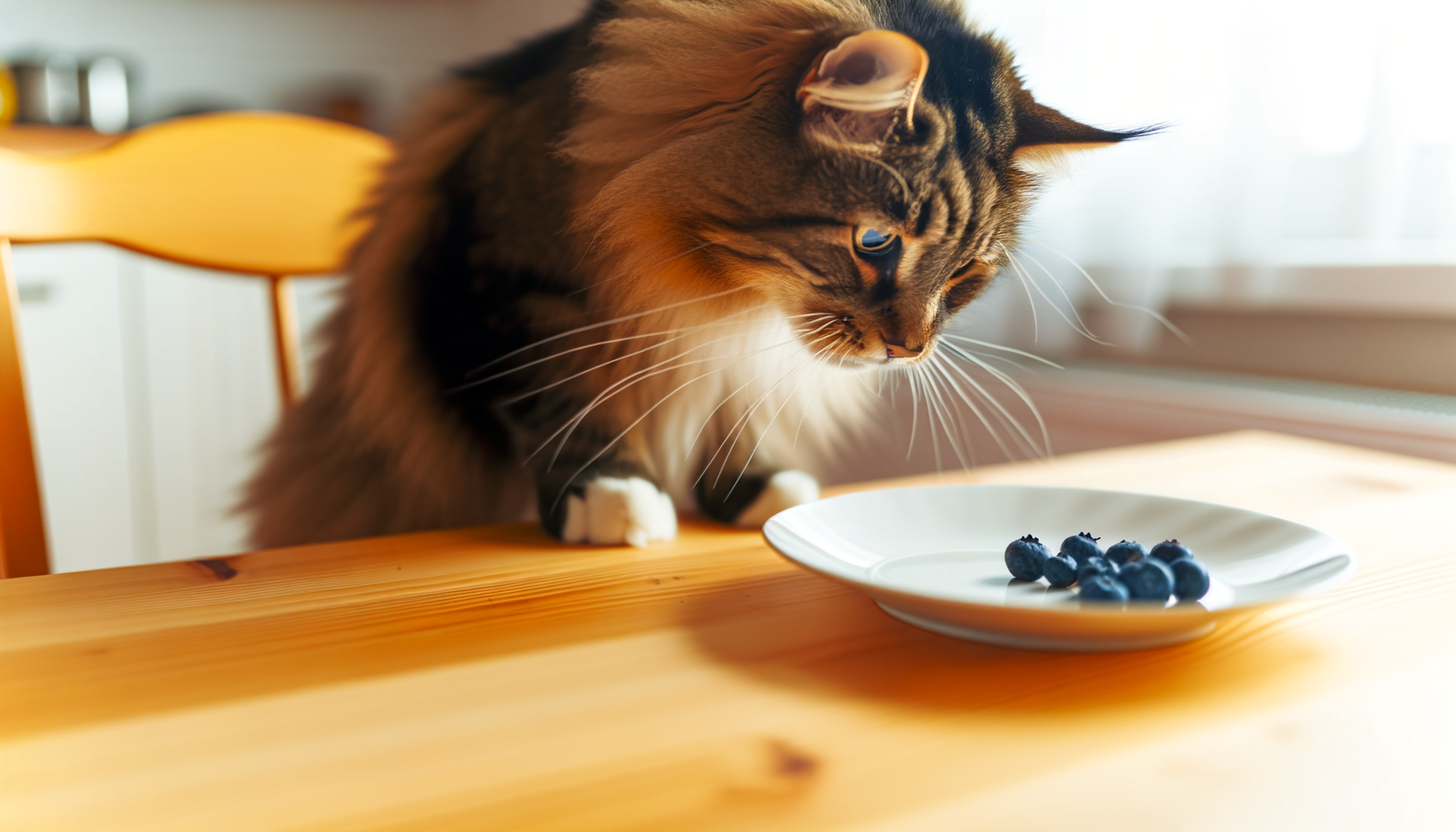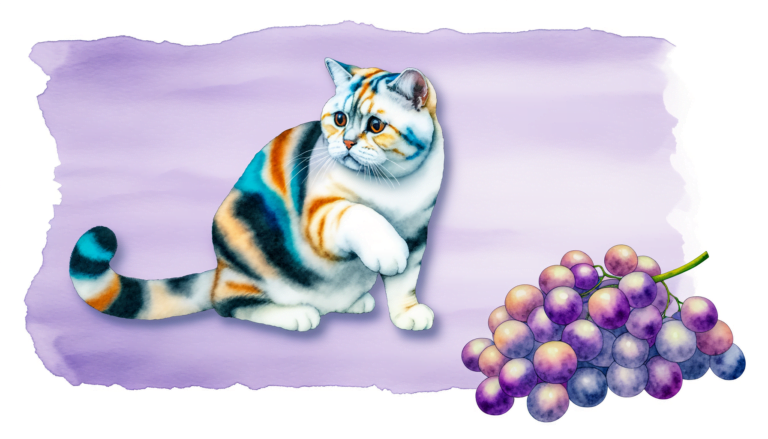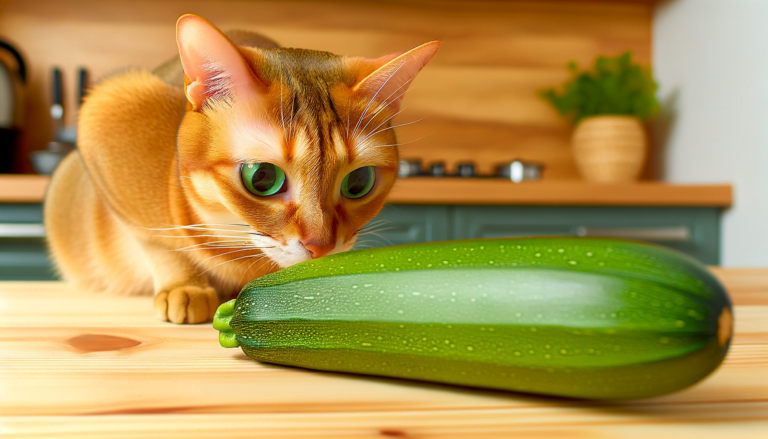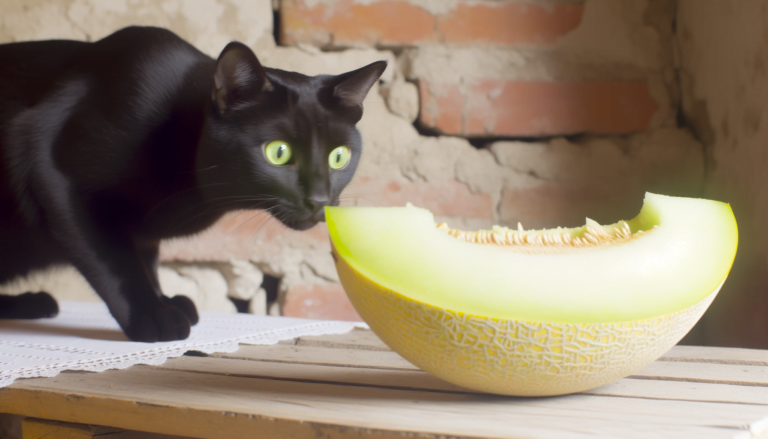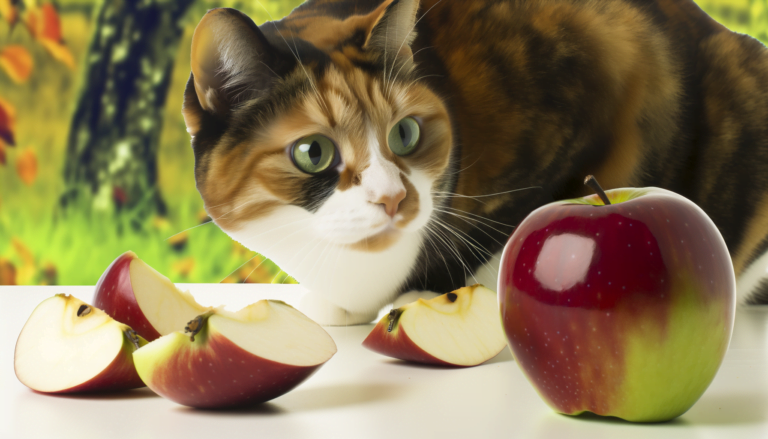Decoding Feline Dietary Secrets: Can Cats Safely Enjoy Blueberries?
Yes, cats can indeed enjoy blueberries. These small fruits are safe and non-toxic to our feline friends, and some may even find them tasty. Blueberries are packed with antioxidants and vitamin C, which are beneficial for overall health. However, it’s important to remember that cats are obligate carnivores and derive their main nutritional needs from meat. Blueberries should only be offered as a small treat, not as a significant part of their diet. Always remember to introduce any new foods slowly, and observe your cat for any changes in behaviour or digestive disruptions.
The Nutritional Benefits of Blueberries for Cats
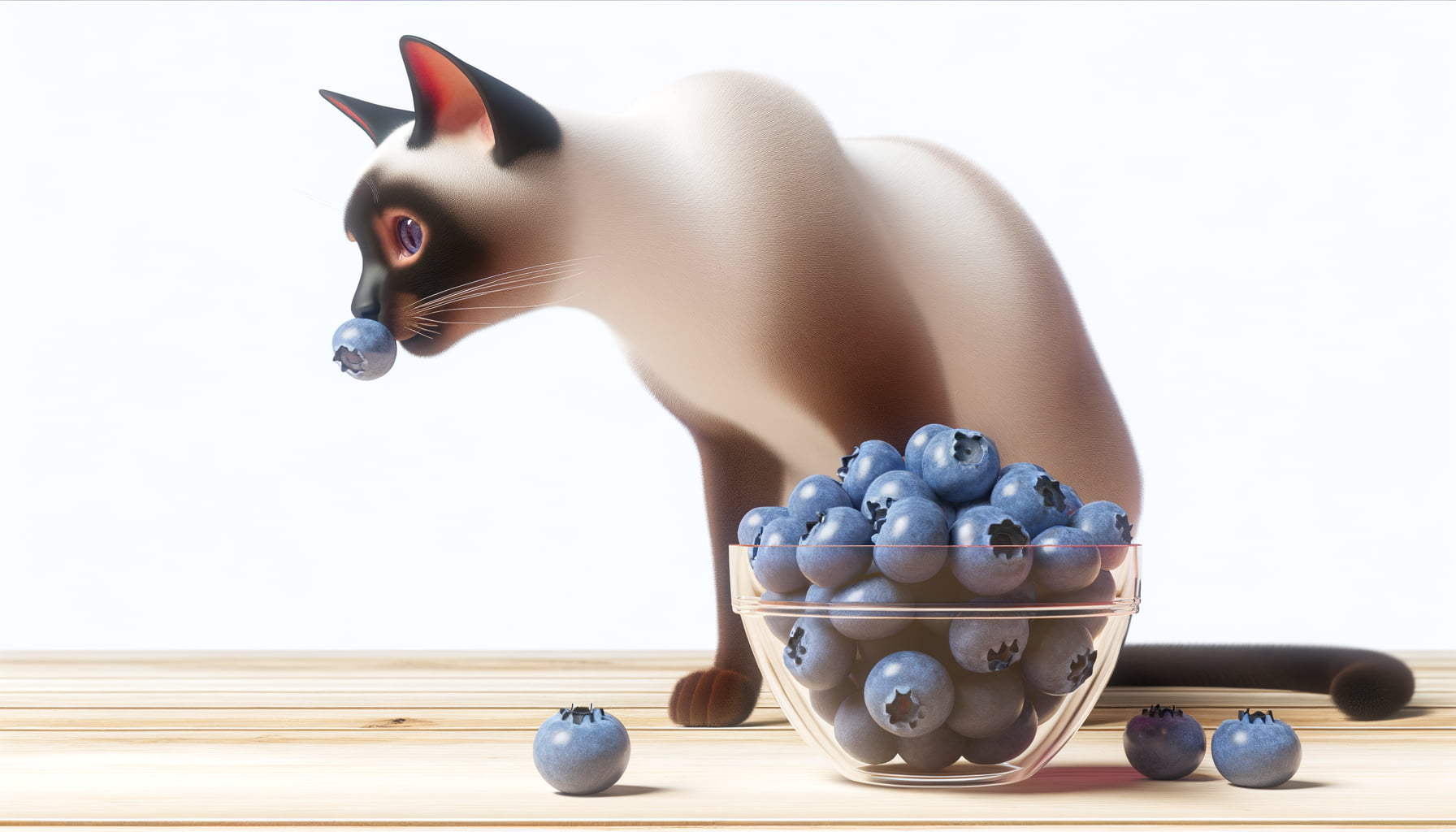
When considering the nutritional benefits of blueberries for cats, it’s interesting to note their high antioxidant content. Antioxidants are vital in combating free radicals, which can damage cells and contribute to ageing and diseases. In this context, blueberries can boost your cat’s overall health.
Another key benefit of blueberries is their rich fiber content. Fiber aids in digestion and can help your cat maintain a healthy weight by controlling overeating. Additionally, blueberries contain a small quantity of vitamin C and K, and a trace amount of protein.
However, it’s important to bear in mind that despite these benefits, cats are obligate carnivores. This means that their primary source of nutrition should ideally come from meat-based diets. Thus, while offering nutritional perks, blueberries should only be served to cats as an occasional treat rather than a diet staple.
Understanding Cats’ Dietary Needs

Cats, as obligate carnivores, need a diet heavy in meat. Proteins and specific sorts of fats that they can only obtain from meat sources are essential to them. As such, cats’ dietary needs are fundamentally different from omnivores like humans. Although they can digest a limited range of plant-based food, their requirement for it in their daily diet is minimal.
Nonetheless, cats’ attraction to the sweet smell of certain plant-based foods like blueberries isn’t unusual. However, it’s crucial to recognize that while these foods may add variety to their culinary adventures, they should not replace their primary meat-based diet. The potential benefits or harm of plant-based foods to cats should be assessed before incorporating them into their meal plan.
It’s also worth noting that every cat is unique and their food tolerance or preference can widely vary. As a cat owner, it’s your responsibility to observe and understand your cat’s dietary needs and reactions to different types of food. With new food introductions, gradual and careful approach is imperative to best care for your feline friend’s health.
Effective Ways to Introduce Blueberries to Your Cat’s Diet
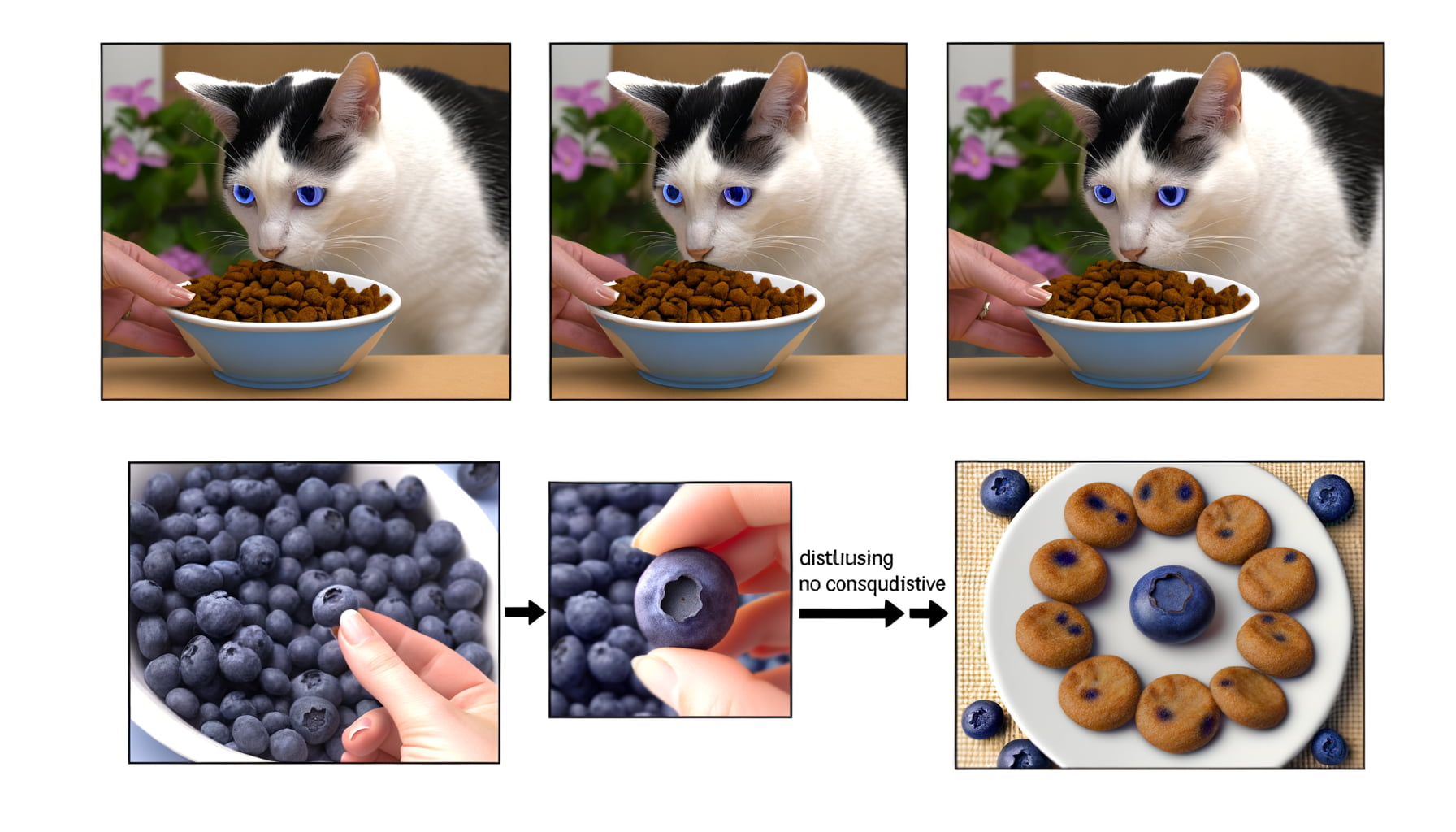
Introducing new foods, such as blueberries, to your cat’s diet can be challenging. However, with some smart tactics, the process can be made smoother. It is important to remember that sudden changes in a cat’s diet can cause digestive issues. Therefore, begin with small amounts. You might crush a single blueberry and mix it in their regular food.
Observing your cat’s reaction to the new food is essential. If your feline shows a liking for the blueberry-infused meals, you can gradually increase the quantity. However, it’s essential to ensure that the serving of blueberries remains small – they should make for only a tiny fraction of your cat’s diet. No more than 10% of their daily calorie intake should come from non-formula sources.
Another method of introducing blueberries into your cat’s daily dietary regimen revolves around using them as treats. Cats, similar to other animals, enjoy rewards. Incorporating them into training routines or using them sparingly as a delicious little surprise can be beneficial. Remember, moderation is the key when it comes to feeding your cat blueberries or any human food, for that matter.
Potential Risks of Feeding Blueberries to Cats
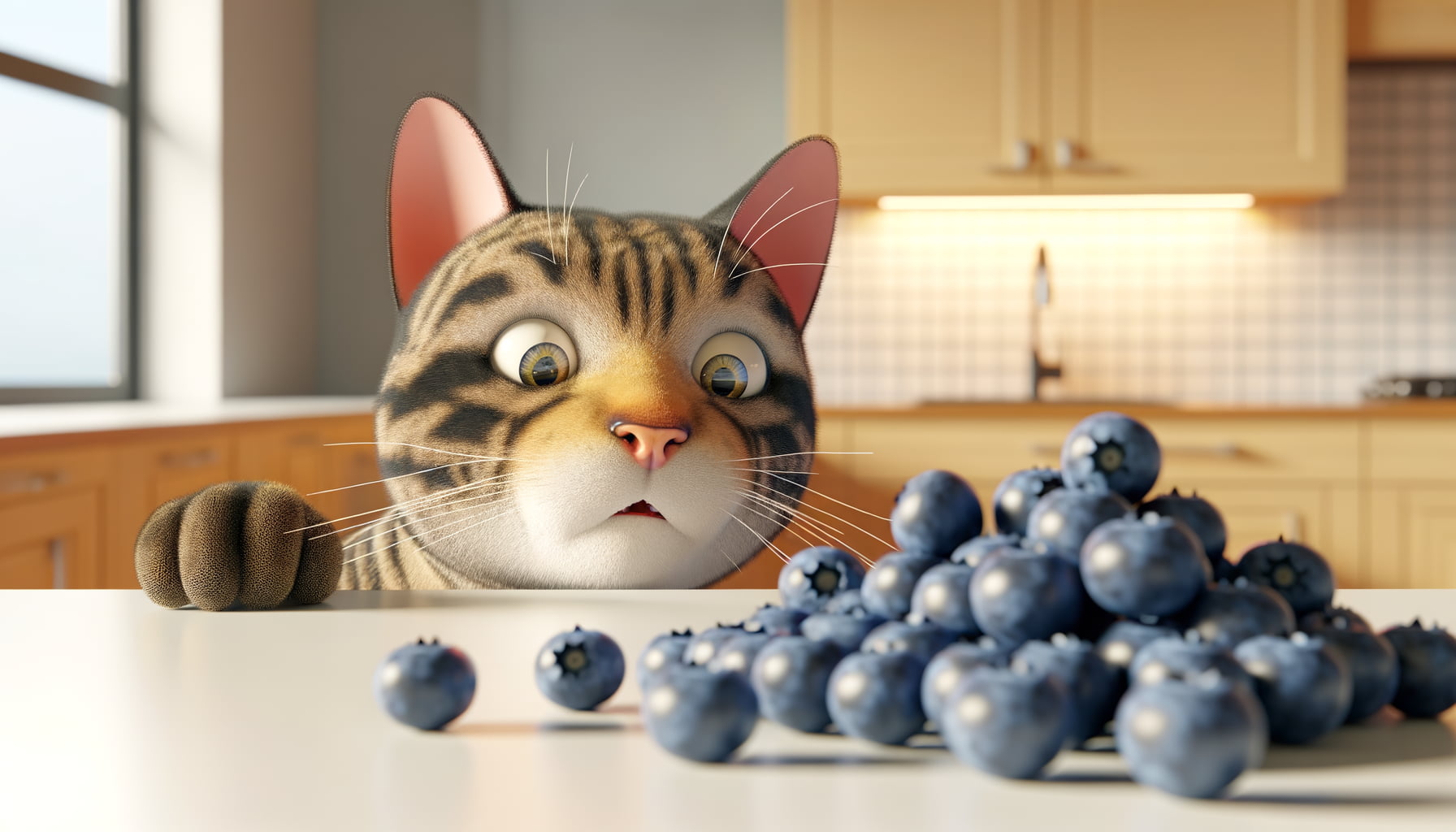
Blueberries are safe for cats to ingest in moderation; however, there are a few potential risks to consider. Firstly, blueberries contain natural sugars that may elevate a cats’ glucose levels if consumed in large quantities. Cats have limited capacity to metabolize sugars, leading to potential health issues such as obesity and diabetes.
Secondly, cats are obligate carnivores, meaning their bodies rely primarily on nutrients found in meat. While blueberries hold a host of beneficial properties for humans, cats would derive little nutritional value from them. Over-reliance on fruits, including blueberries, could result in nutritional deficits.
Lastly, the high fiber content in blueberries could cause digestive upset in some cats. Various potential symptoms include diarrhea, constipation, or general discomfort. As always, monitor your cat for any adverse reactions when introducing new foods into their diet.
Conclusion
In conclusion, while cats may safely enjoy some fruits like blueberries in moderation, it’s essential to remember that felines have specific dietary needs that require balance and moderation. As with any new food introduction, it’s always best to consult with a veterinarian before adding blueberries or any other human foods to your cat’s diet.
Understanding and respecting your cat’s unique dietary requirements will ensure their health and well-being in the long run. By incorporating a variety of safe and appropriate foods into their diet, you can provide your feline friend with a balanced and nutritious meal plan that supports their overall health and longevity.
